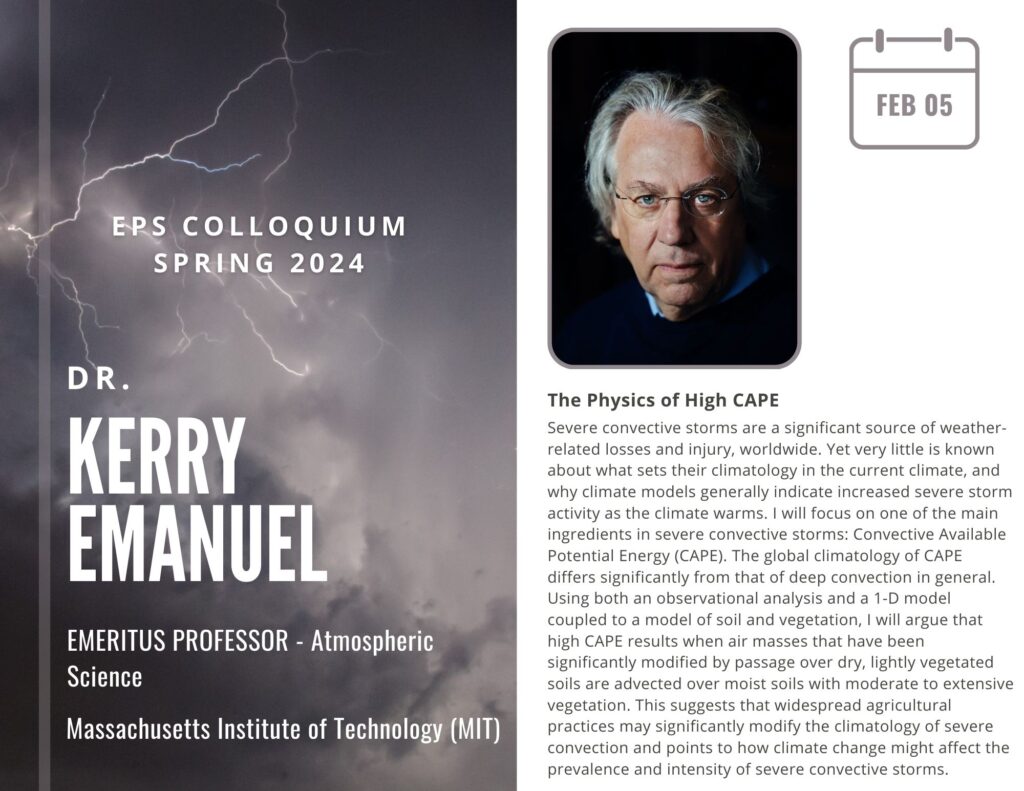EPS Colloquium – Kerry Emanuel, Professor Emeritus, MIT
The Physics of High CAPE
Severe convective storms are a significant source of weather-related losses and injury, worldwide. Yet very little is known about what sets their climatology in the current climate, and why climate models generally indicate increased severe storm activity as the climate warms. In this talk, I will focus on one of the main ingredients in severe convective storms: Convective Available Potential Energy (CAPE). The global climatology of CAPE differs significantly from that of deep convection in general; for example, high CAPE values are quite rare over the ocean. Using both an observational analysis and a 1-D model coupled to a model of soil and vegetation, I will argue that high CAPE results when air masses that have been significantly modified by passage over dry, lightly vegetated soils are advected over moist soils with moderate to extensive vegetation. This suggests that widespread agricultural practices may significantly modify the climatology of severe convection and points to how climate change might affect the prevalence and intensity of severe convective storms.
To be added to the EPS colloquium mailing list, please contact Caroline Carr at carolinecarr@fas.harvard.edu.

Dr. Kerry Emanuel is the Cecil and Ida Green emeritus professor of atmospheric science at the Massachusetts Institute of Technology, where he was on the faculty from 1981 to 2022. Before that he was on the faculty of UCLA from 1978 to 1981. Emanuel’s initial focus was on the dynamics of rain and snow banding in winter storms, but his interests gradually migrated to the meteorology of the tropics and to climate change. His specialty is hurricane physics and he was the first to investigate how long-term climate change might affect hurricane activity, an issue that continues to occupy him today. His interests also include cumulus convection, and advanced methods of sampling the atmosphere in aid of numerical weather prediction.

